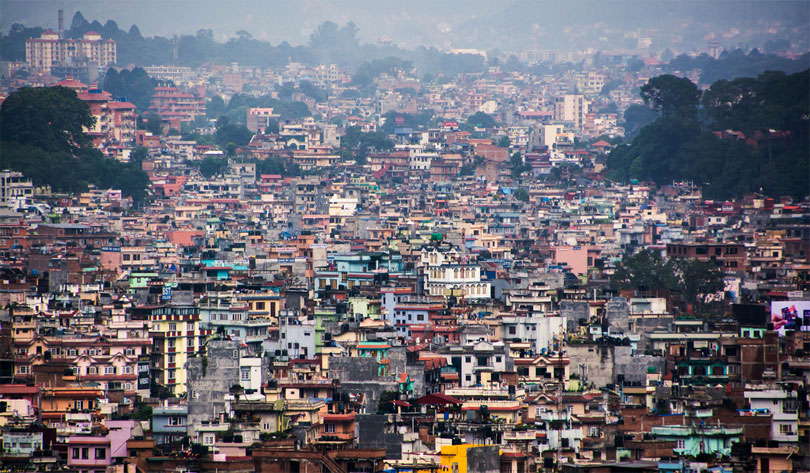Many Nepali and English newspapers published from Kathmandu on Tuesday have carried out opinion pieces that analyse election manifestoes issued by major political parties in the run-up to provincial and federal parliamentary elections. The opinion writers have focused on how practical and implementable the promises are. Besides, other contemporary political, economic and social issues have been covered by opinion makers today.
Migration trend and nationalism

Subhash Pokharel in his lead article for Nagarik discusses changes seen in the international migration trend of Nepalis over the passage of time and connects the issue with the idea of patriotism and nationalism. Pokharel’s analysis is that those migrated to the Gulf countries for labour have more love and respect to the country and nationality because they have to return home after completing the assignment. They cannot settle in the host countries even if they want to because of strict immigration laws. In contract, those migrated to comparative prosperous nations, including those of America, Europe and Australia can manage their permanent settlement in the host countries thanks to comparatively weak immigration laws and hence they do not want to return home.
Pokharel claims most of the Nepalis working in the Gulf belong to the lower class families; hence they have a financial responsibility for the family. Therefore, they regularly send money to the family and the country through legal means of remittance. In contrast, most people migrating to Europe and America are from upper class and they do not have any financial responsibility to the family. Rather, their parents or family members have so much money, sometimes earned through corruption and illegal means, that they want to use that money for the settlement of their children in other countries. Nepal’s monetary policy also restricts them from sending money abroad through legal means; hence they resort to illegal means.
Concluding that those working in the Gulf have more respect and love for their country than those studying or working in Europe and America, Pokharel argues the state must prioritise welfare of ‘more patriotic’ migrant workers in its policies and actions.
Transitional justice management

Naya Shakti Party Nepal leader Khimlal Devkota has written an article for Gorkhapatra today explaining why Nepal is failing to make any significant progress in transitional justice management. According to him, Nepali peace process had four prime objectives: to end the armed conflict, to draft the constitution from a people-elected Constituent Assembly, to restructure the state system with economic and social transformations, and to ensure transitional justice with an investigation into conflict-era cases. He argues that though some progress has been made towards the first, second and third objectives, the fourth objective has been left in the lurch owing to lack of clear vision in the state and other stakeholders.
Devkota says the recent arrest of Maoist leader Bal Krishna Dhungel in connection to a case happened during the conflict period has raised questions about the state’s commitment to transitional justice. Stating that such cases should have been settled by transitional justice mechanisms like the Truth and Reconciliation Commission, Devkota says it is the true sentiment of transitional justice. However, the TRC’s term is expiring hence he argues that a new high-level transitional justice mechanism should be formed to deal with such cases.
For the city chockfull with high-rises

As the Kathmandu Metropolitan City is yet to take a concrete decision about the reconstruction of historic tower of Dharahara that collapsed in the 2015 earthquake, Hari Bahadur Thapa in his article for Rajdhani argues that the reconstruction is not necessary because such structure does not serve any purpose in the modern times as there are many tall buildings. Citing that the KMC has now decided to build a 15-storey building for its office, Thapa argues the local body should promote construction of other tall buildings in the city.
According to Thapa, high-rises are one of the basics of developed cities; hence Kathmandu should also promote it. On the other hand, such buildings also address the issue of lack of sufficient land to build residence facilities for ever-growing population. He suggests if we want to give such buildings a shape of historical tower like that of Dharahara, the roofs can be designed in some specific shapes.
Cross-border crimes and solutions

Former security official Kishor Kumar Lama in his lead article for The Himalayan Times today argues that countries like Nepal and India which share open borders between them must take significant measures to control and combat cross-border criminal cases as the threat is ever increasing. He says the restriction in open border alone is not the solution; rather it would have detrimental impacts upon the economy and strain relation.
According to Lama, other more effective measures are implementing regulated and limited border monitoring plans in risk-prone areas, deploying sufficient security personnel with techno-scientific support. “The geo-political situation not only addresses mutual security considerations but also fosters socio-economic bilateral relations,” he says, arguing that the open border should be used for mutual benefits of both the countries.
























